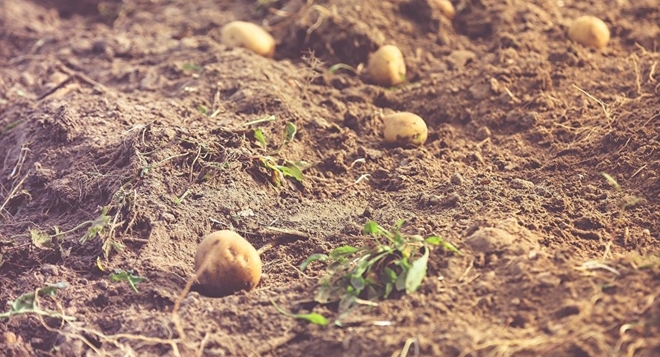New Experiment Suggests Humans Can Grow Potatoes on Mars
- NASA’s Mars-Orbiting Spacecraft Avoids Upcoming Collision With Planet’s Moon
- NASA Releases Image Depicting the "Heart" of Mars
The interior of the Peruvian CubeSat satellite was designed to mimic Martian conditions as closely as possible, with a thin carbon-dioxide atmosphere and little oxygen. The CubeSat houses soil and tubers, with sensors constantly monitoring the potatoes and sending a livestream to Earth. On Wednesday, CIP announced in a news release that "preliminary results are positive" and that they believe edible potatoes are on the way.
Ordinarily, normal potato plants cannot grow under such extreme conditions, but potatoes have a wide potential for genetic flexibility. CIP breeder Walter Amoros explained that potato clones were used, those particular strains meant to survive in high-salinity soil with very little water. The clones were originally developed to be grown in Peru's Pampas de La Joya salt desert, said to be the most Martian-like biome on Earth.
 |
"We have been looking at the very dry soils found in the southern Peruvian desert. These are the most Mars-like soils found on Earth," said Chris McKay of NASA's Ames Research Center (ARC). "This [research] could have a direct technological benefit on Earth and a direct biological benefit on Earth."
"Growing crops under Mars-like conditions is an important phase of this experiment," said Julio Valdivia-Silva, an ARC research associate. "If the crops can tolerate the extreme conditions that we are exposing them to in our CubeSat, they have a good chance to grow on Mars."
Andy Weir, author of the science fiction novel on which The Martian was based, researched extensively to make the story as scientifically accurate as possible. "Well, they've known for a while that crops can grow in Martian soil," he told Engadget on Wednesday. "It's just a matter of cleaning the perchlorates out of the soil, and providing an Earth-like environment (air, water, temperature, etc.)."
Perchlorates, acidic salts used in rocket fuel and fireworks, are most commonly found in salt deserts. Chemical analysis revealed a large amount of perchlorates present in Martian soil, about 100,000 times that of typical Earth soil. As perchlorates are toxic to humans, Martian-grown food would be rendered inedible.

